6 Best Anti-Inflammatory Teas to Naturally Reduce Inflammation in Your Body
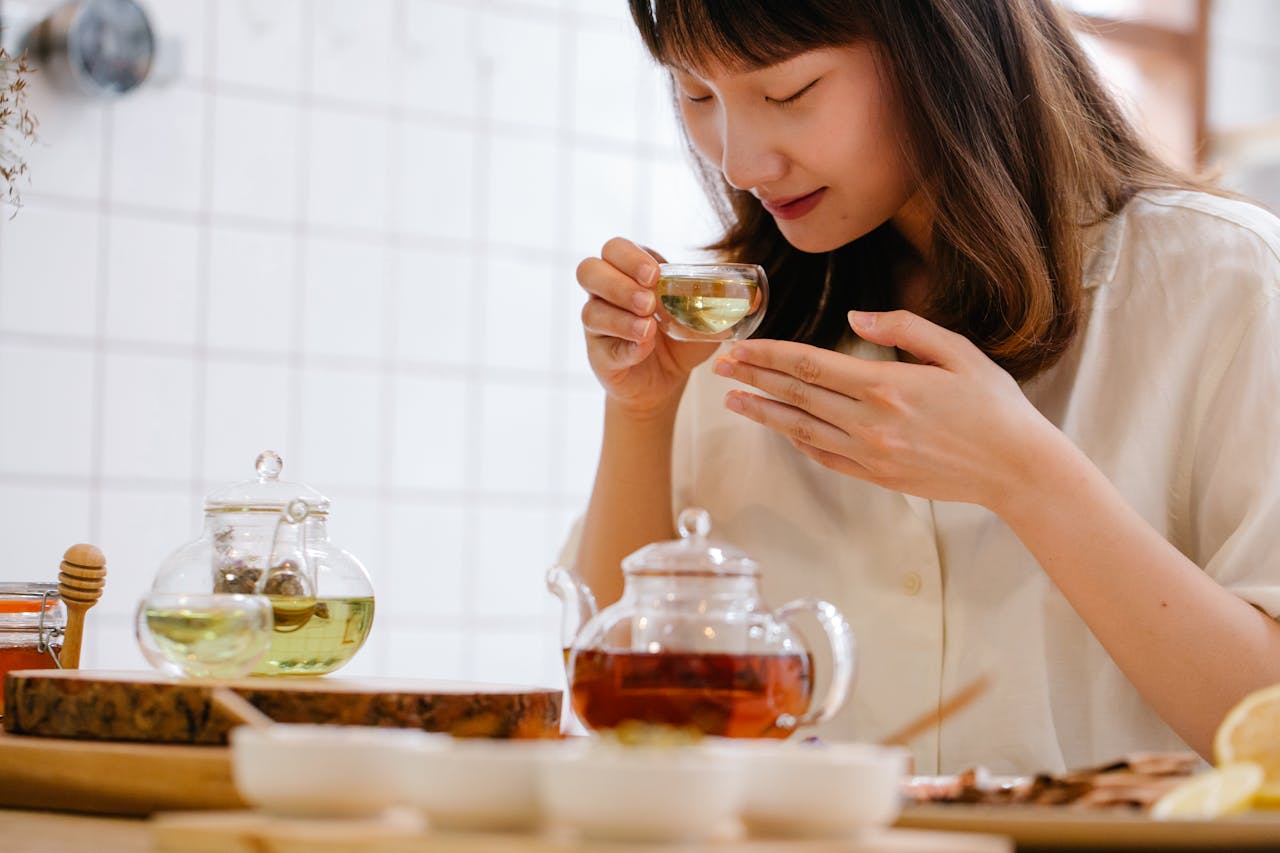
Inflammation—while a natural immune response—can be a real problem when it becomes chronic. Whether it’s caused by stress, poor diet, or underlying conditions like arthritis, chronic inflammation can lead to fatigue, joint pain, or more severe health issues over time. If you’ve been searching for natural ways to reduce inflammation, sipping on the right teas could be a simple and effective solution.
Certain teas are packed with anti-inflammatory properties that work wonders in soothing inflammation, boosting immunity, and promoting overall health. Let’s dive into the six most powerful teas to help fight inflammation and how you can easily add them to your daily routine.
1. Turmeric Tea: The Golden Wonder
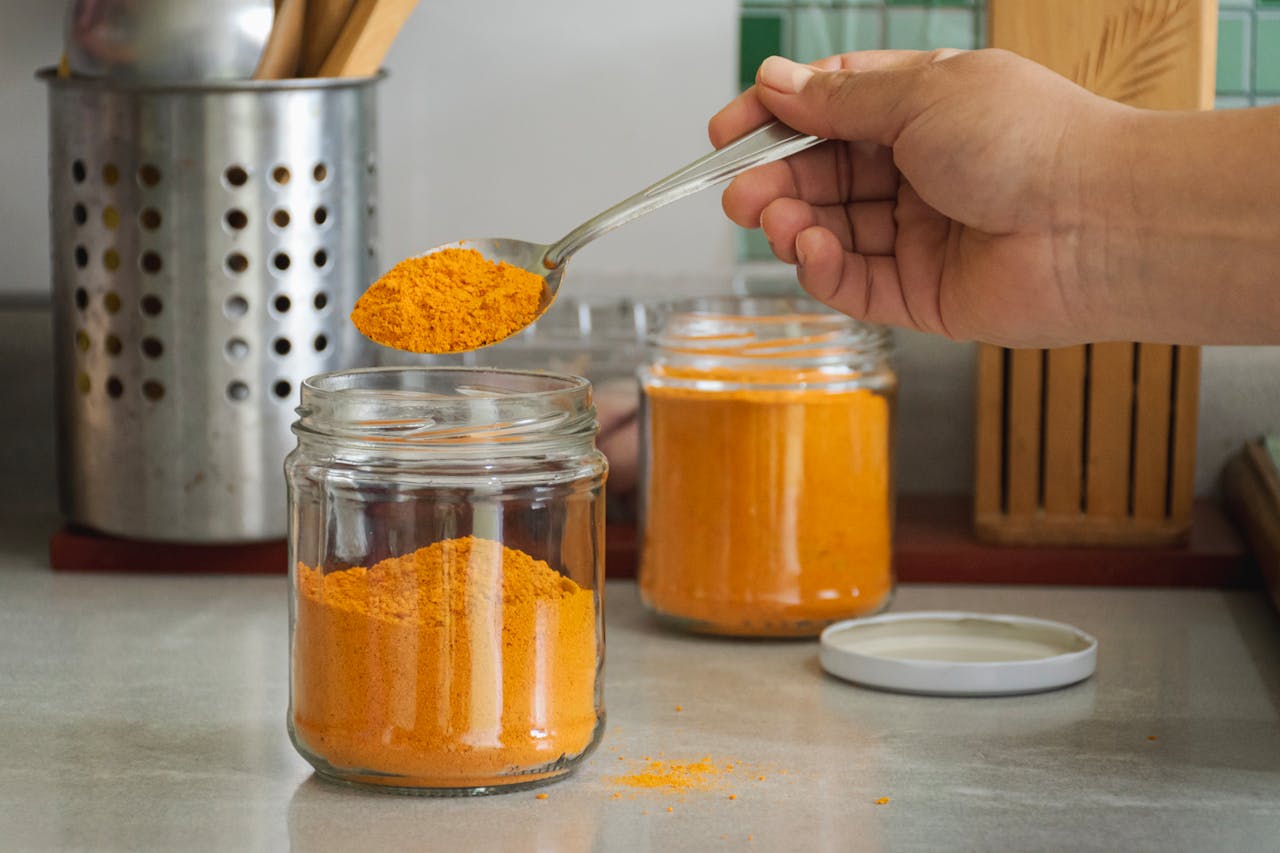
Turmeric tea, often referred to as “liquid gold,” is a powerful ally when it comes to fighting inflammation. The magic ingredient here is curcumin, a compound that boasts incredible anti-inflammatory and antioxidant benefits. Turmeric has long been a staple in traditional medicine, especially in Ayurveda, where it’s used to treat everything from joint pain to skin conditions.
Curcumin works by blocking molecules in the body responsible for inflammation. In fact, studies suggest that it may be just as effective as some anti-inflammatory medications, minus the unpleasant side effects. People with arthritis, inflammatory bowel disease, or chronic skin conditions like eczema can all benefit from sipping this golden tea regularly. To make the most of your turmeric tea, add a pinch of black pepper—it enhances curcumin absorption—and enjoy with a bit of honey or ginger for added flavor and anti-inflammatory power.
Not only is turmeric tea beneficial, but it’s also wonderfully soothing, making it a great choice to unwind with at the end of a long day.
2. Ginger Tea: The Zesty Healer
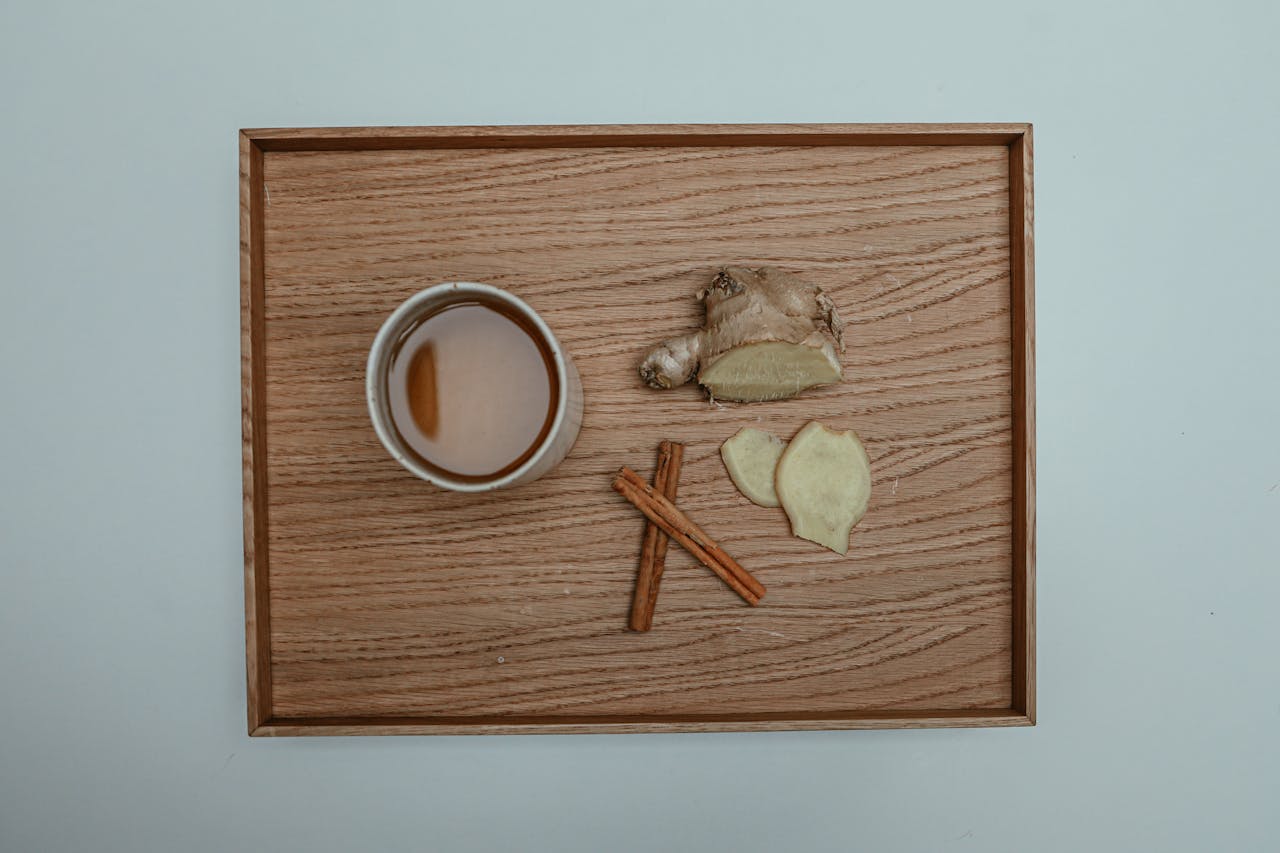
Ginger tea is like a spicy, invigorating hug in a cup. Known for its sharp flavor and countless health benefits, ginger tea is packed with compounds like gingerols and shogaols, which are known to reduce inflammation and oxidative stress. This tea is a fantastic option if you’re looking for something that tastes delicious while also working wonders for your body.
The anti-inflammatory properties of ginger are so strong that they’ve been compared to common over-the-counter anti-inflammatory drugs, but without the potential risks. It’s particularly effective for those suffering from joint pain, arthritis, or muscle soreness, and it’s a must for anyone dealing with digestive inflammation like IBS. A warm cup of ginger tea after a meal can also help with bloating and indigestion, two common symptoms of inflammation in the gut.
Brewing ginger tea is simple—just steep a few slices of fresh ginger in boiling water for about 10 minutes, and you’re good to go. The addition of lemon or honey can take the flavor up a notch while providing extra anti-inflammatory benefits. It’s a wonderful tea to start or end your day with, giving your body the tools it needs to heal from the inside out.
3. Green Tea: The Antioxidant Powerhouse
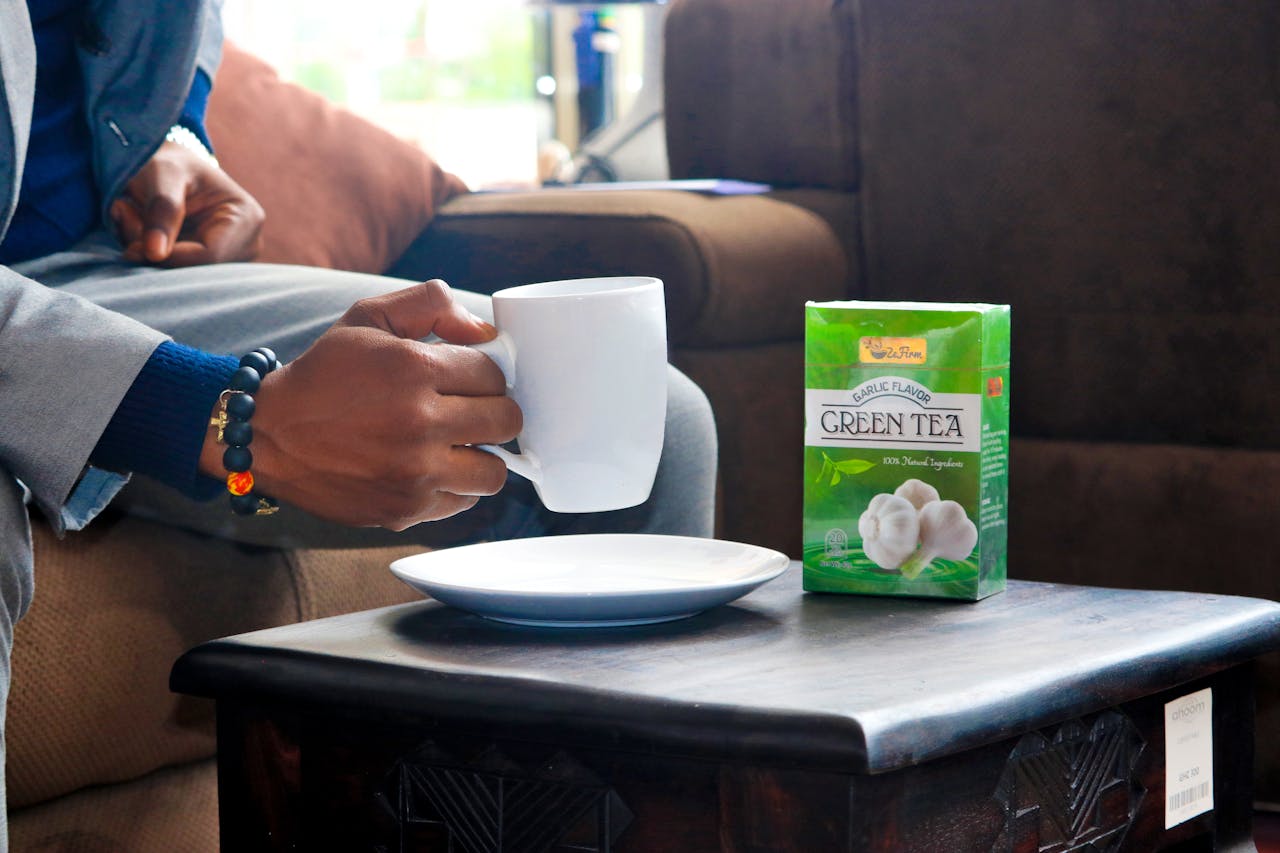
Green tea has a bit of a legendary status when it comes to health, and for good reason. This vibrant tea is rich in antioxidants, most notably epigallocatechin gallate (EGCG), which plays a crucial role in reducing inflammation. If you’re looking for a tea that not only helps with inflammation but also offers a slew of other health benefits, green tea should be at the top of your list.
The beauty of green tea lies in its ability to block the production of inflammatory chemicals in the body. Over time, regular consumption of green tea can lower your risk of developing chronic diseases like heart disease, certain cancers, and even neurodegenerative conditions like Alzheimer’s. Not only does green tea combat inflammation, but it also helps protect your cells from oxidative damage, making it a powerful all-around healer.
To get the best results, make sure to steep high-quality green tea leaves in hot (but not boiling) water for about three minutes. Green tea pairs well with a splash of lemon or honey, both of which enhance its flavor and health benefits. So if you’re looking to sip your way to better health, green tea should definitely be in your daily rotation.
4. Chamomile Tea: The Calming Anti-Inflammatory
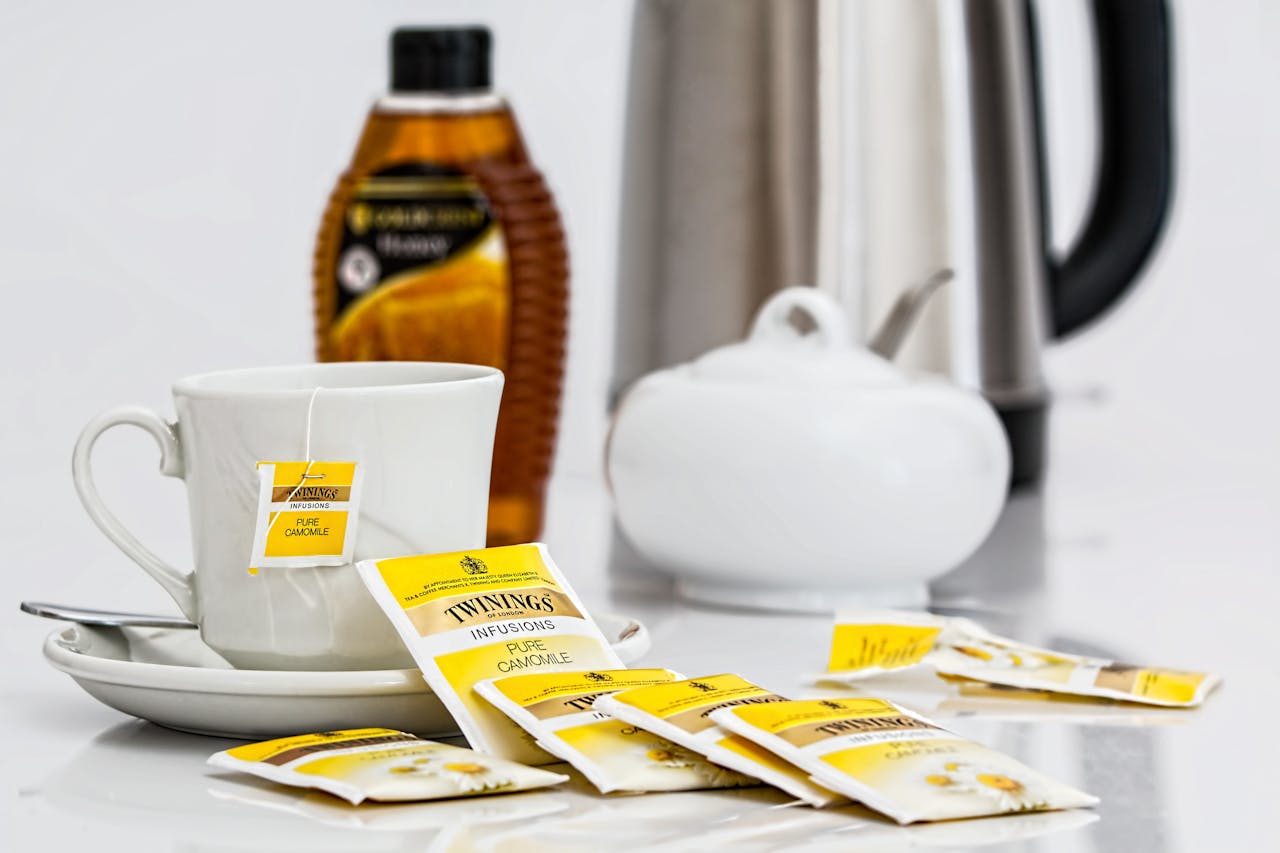
Chamomile tea is often associated with relaxation and a good night’s sleep, but its benefits extend far beyond calming your nerves. Chamomile is rich in flavonoids, particularly apigenin, which gives this gentle tea its potent anti-inflammatory and antioxidant properties. This makes it an excellent choice for anyone battling inflammation, particularly those who experience digestive issues.
Chamomile works wonders on inflammation in the digestive tract, helping to ease conditions like IBS and colitis. Its soothing nature also makes it a favorite for people dealing with skin inflammation, such as eczema or rosacea. The best part? It’s caffeine-free, making it a perfect evening brew when you’re winding down from a long day.
Brewing chamomile tea is as easy as it gets—just steep dried chamomile flowers in hot water for a few minutes. For an added twist, you can sprinkle in a bit of cinnamon or stir in some honey for sweetness. Whether you’re sipping chamomile to calm your mind or reduce inflammation, this tea works on multiple levels to heal and restore balance in your body.
5. Rooibos Tea: The Caffeine-Free Healer
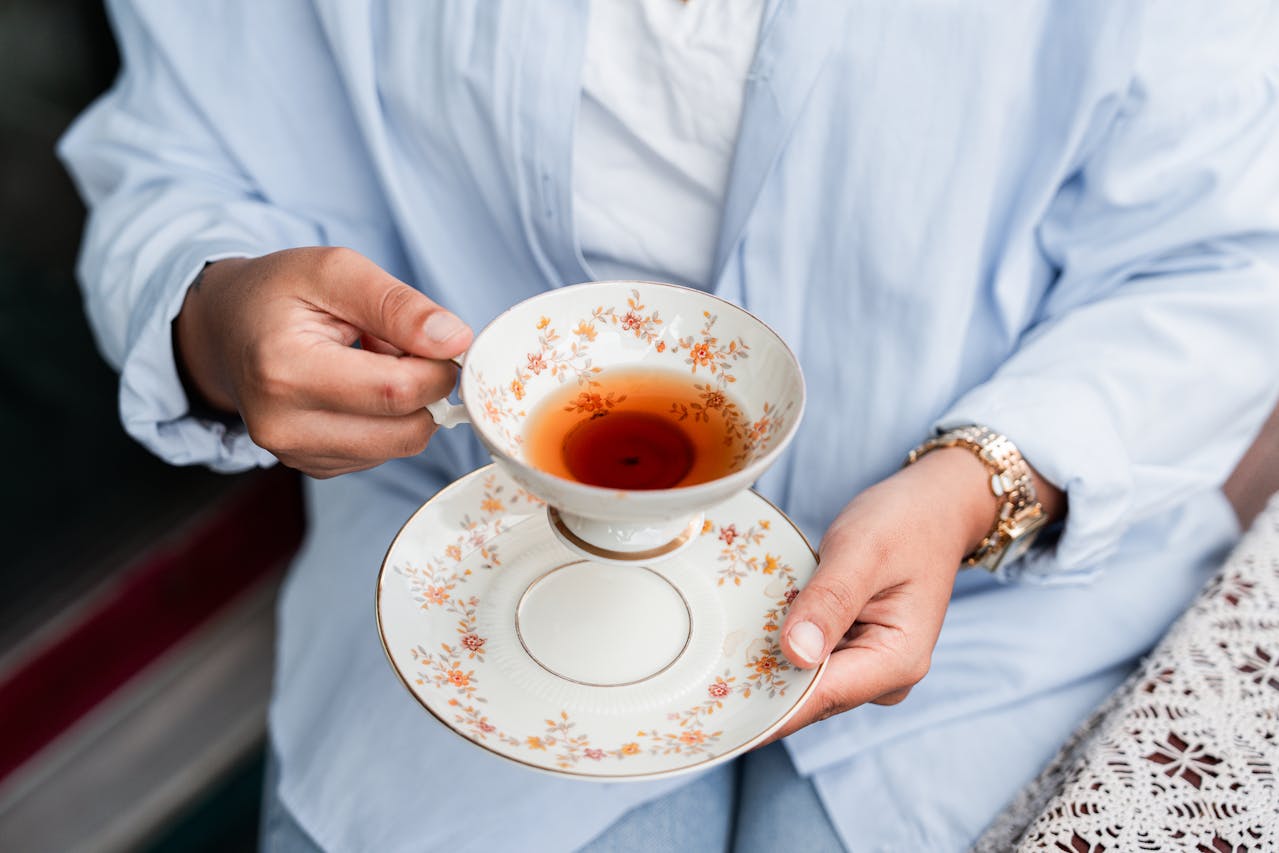
If you’re looking for a caffeine-free option that’s still packed with anti-inflammatory properties, rooibos tea is your go-to. Hailing from South Africa, rooibos is an herbal tea that has gained global popularity, and it’s not hard to see why. Rooibos is full of polyphenols, natural compounds that fight inflammation and protect your cells from damage.
What sets rooibos apart is its high concentration of quercetin, a bioflavonoid that helps to reduce the production of inflammatory molecules. This makes rooibos tea especially effective for people dealing with chronic inflammatory conditions like arthritis, eczema, or asthma. Plus, because rooibos is naturally caffeine-free, you can drink it any time of day without worrying about sleepless nights.
Rooibos has a naturally sweet flavor, but adding a drop of vanilla or a spoonful of honey can enhance its taste. Whether you drink it hot or iced, this tea is a refreshing and soothing option that supports your body’s ability to heal itself.
6. Peppermint Tea: The Cooling Soother
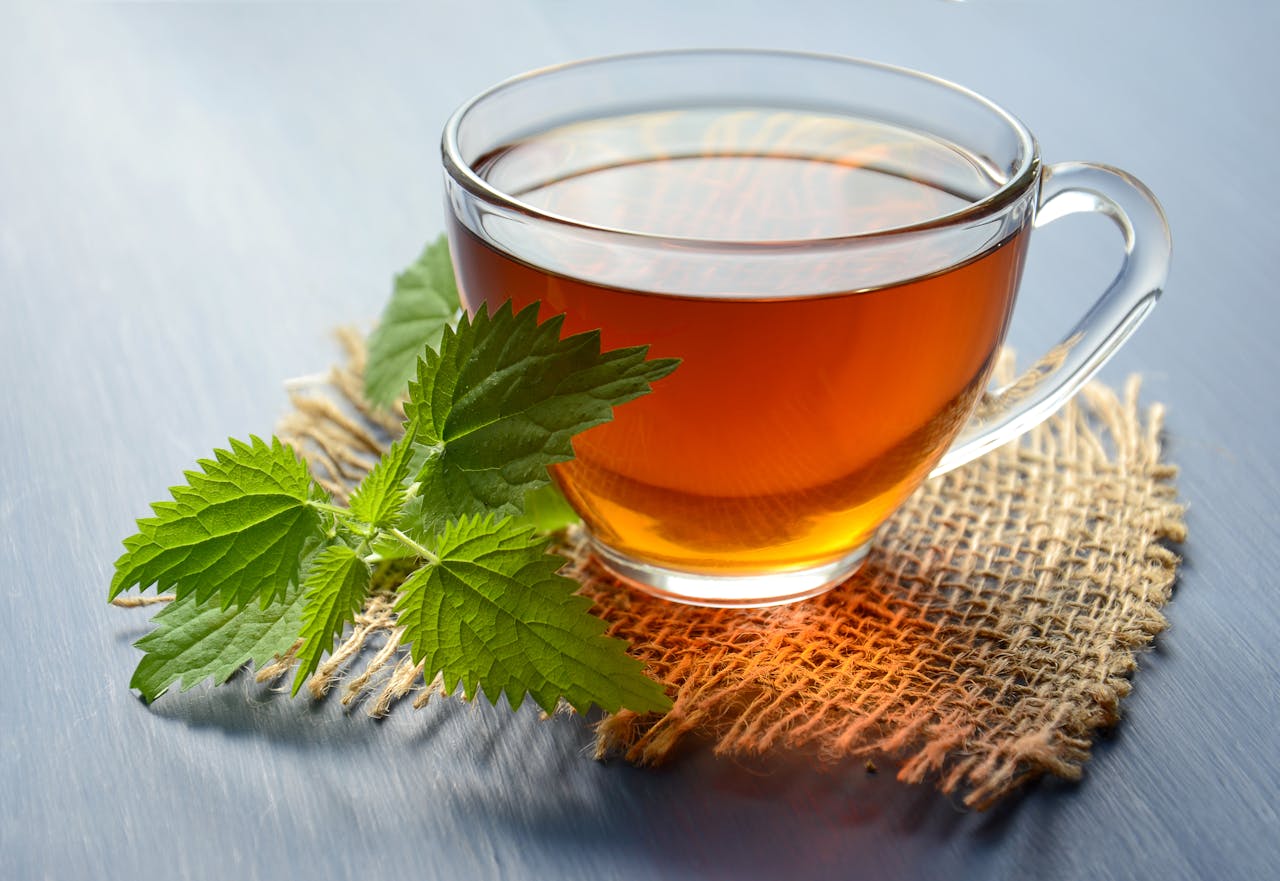
Peppermint tea isn’t just refreshing—it’s also a potent tool in reducing inflammation, particularly in the digestive and respiratory systems. The menthol in peppermint is known for its cooling effect, which helps to soothe inflamed tissues and relax muscles. If you’ve ever dealt with an upset stomach or bloating after a meal, you know how calming a cup of peppermint tea can be.
But its benefits go beyond just aiding digestion. Peppermint tea is also effective at easing symptoms of respiratory inflammation, making it a great choice for people who suffer from asthma or seasonal allergies. If you’re feeling congested, sipping on peppermint tea can help open up your airways while reducing the inflammation that often comes with colds or sinus issues.
Making peppermint tea is simple. You can steep fresh peppermint leaves in boiling water for about five minutes, or use a peppermint tea bag for convenience. Whether you enjoy it hot or chilled over ice, this tea is a versatile, inflammation-fighting beverage that also happens to taste great.
Final Thoughts
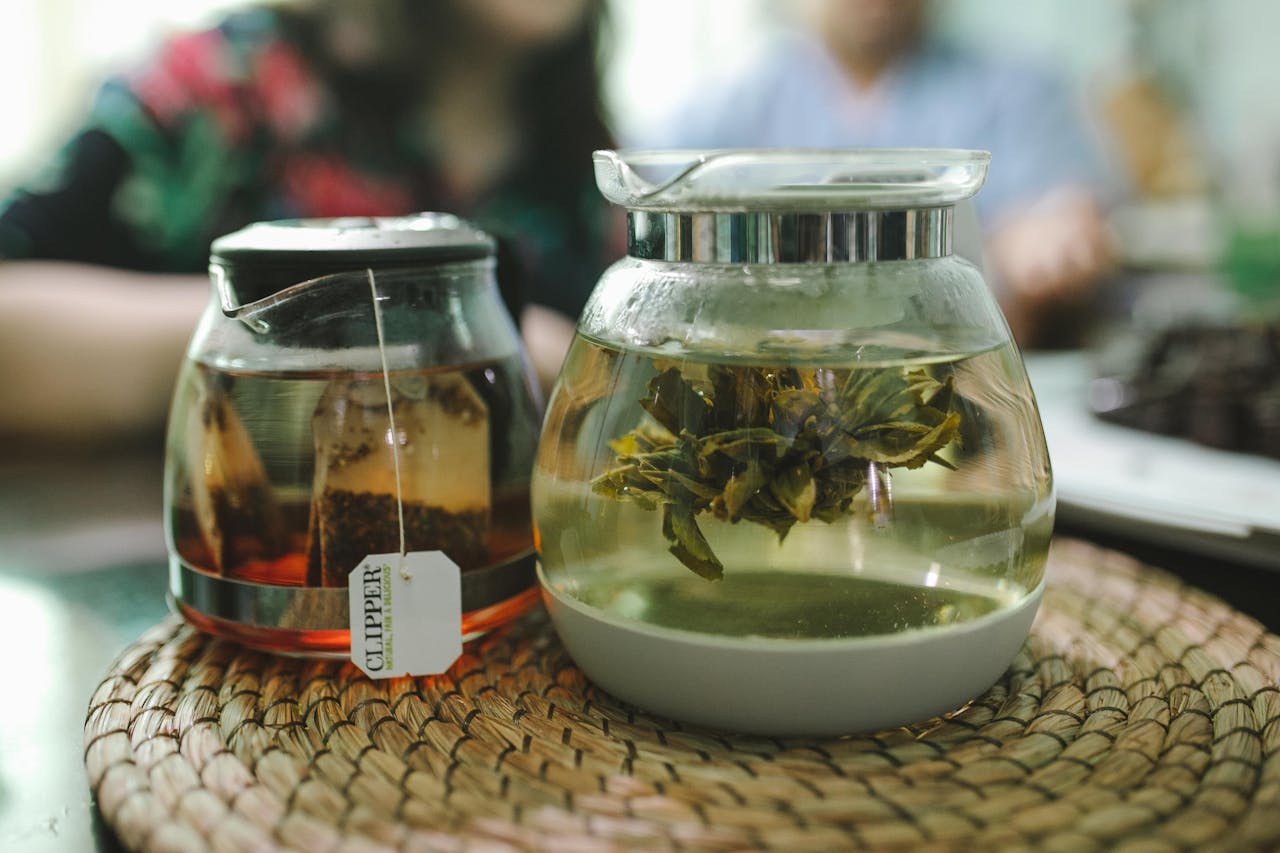
Incorporating these teas into your daily routine is a simple yet effective way to fight inflammation and promote overall wellness. Whether you prefer the bold, earthy flavor of turmeric, the refreshing zing of ginger, or the calming touch of chamomile, each of these teas offers powerful health benefits that go beyond just flavor. Chronic inflammation can lead to a range of health problems, but a warm, healing cup of tea might just be the natural remedy you need to bring balance and calm back to your body.
So, why not make tea time a part of your daily self-care ritual? You’ll not only enjoy the soothing benefits of each cup but also support your body in its fight against inflammation.
Leave a Reply